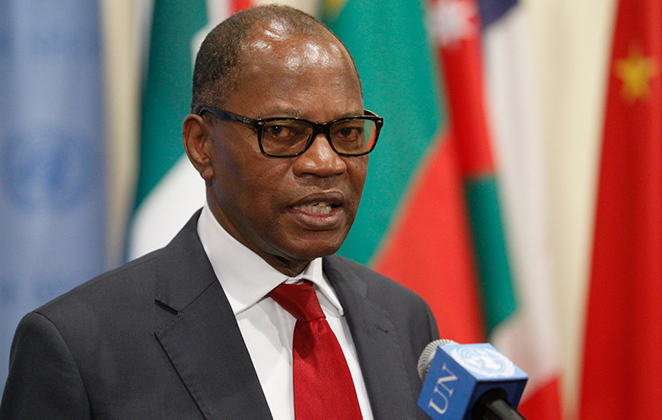Dr. Mohamed Ibn Chambas, a former special representative of the United Nations secretary-general and head of the UN Office for West Africa and the Sahel (UNOWAS), has lamented the continuously deteriorating terrorism threat level in coastal West Africa.
He said the deteriorating security situation in Burkina Faso continued to trigger militant encroachment southwards into coastal States of West Africa, particularly in Northern Benin and Northern Togo.
He noted that Poni, a district in Burkina Faso that borders the Ivory Coast witnessed increased attacks while Koulpelogo province continued to witness increasing attacks closer to the frontier with Ghana.
“The rapid development now leaves the Côte d’Ivoire and Ghana on high alert against possible attacks,” Dr Chambas remarked at the opening ceremony of the Research and Action for Peace (REcAP) Network Regional Conference in Accra.
He said Ghana, the Ivory Coast, and Togo experienced an increased number of displaced persons fleeing terrorist attacks and counter-terrorism operations in Burkina Faso.
He said this situation was creating high national security risks as some of the local populations were reportedly crossing into these countries with their cattle.
The two-day meeting, on the theme “Unifying for Stability: Addressing Violent Extremism amidst Political Uncertainties in West Africa and the Lake Chad Basin”, is being organised by the West Africa Network for Peacebuilding (WANEP) with the support of the European Union (EU).
It brought experts, policymakers, and international and regional actors together to collectively brainstorm, share experts’ knowledge and good practices on how to collectively respond to violent extremism in the context of the continuing challenges in the implementation of existing counterterrorism mechanisms and efforts in West Africa and the Lake Chad Basin.
According to data available in the Africa Terrorism Database, hosted by the African Centre for the Study and Research on Terrorism (ACSRT), the period from 1 January 2023, to 30 September 2023, recorded 2,122 terrorist attacks resulting in 12,092 deaths across the continent, higher than those recorded in the same period in 2022.
Dr Chambas said the 2023 data represented an increase of 95% and 55% in the number of attacks and deaths respectively, when compared to the same period in 2022.
He said also, that a total of 2,865 people were injured during attacks and that the records also indicated that 5,592 of the deaths were civilians whilst 3,178 were military/security personnel with 3,322 terrorist fighters killed by security forces during the attacks launched by terrorist groups.
He said in addition to the number of terrorists killed during reprisal attacks by security forces, 5,312 fighters of the various terrorist groups were neutralized during deliberate counter-terrorism operations launched by the military, bringing the total number of terrorist fighters eliminated during the period to 8,534.
Dr Chambas said at the regional level, West Africa recorded the highest number of terrorist attacks; adding that the region recorded 1,027 attacks that resulted in 6,255 deaths.
He noted that Benin, Burkina Faso, Mali, Niger, Nigeria, and Togo were the countries in which the attacks occurred in the region with Burkina Faso experiencing a rather exponential increase in the number of attacks during the period.
Levinia Addae-Mensah, deputy executive director and programme director, of WANEP, said the recent developments in the political landscape of West Africa and the Lake Chad Basin had been extremely worrying, particularly West Africa.
She said within the last few years the region had witnessed a number of coup d’états and attempted coups; saying “It almost becomes like a weekly affair and hoped that last of the skirmishes in Guinea Bissau be the last”.
Romain SZTARK, Head of Multi-Country Operations West Africa and North Africa, Democratic Republic of Congo, said economic disparities, unemployment, and poverty could and often would, fuel the grievances that extremists could exploit.


